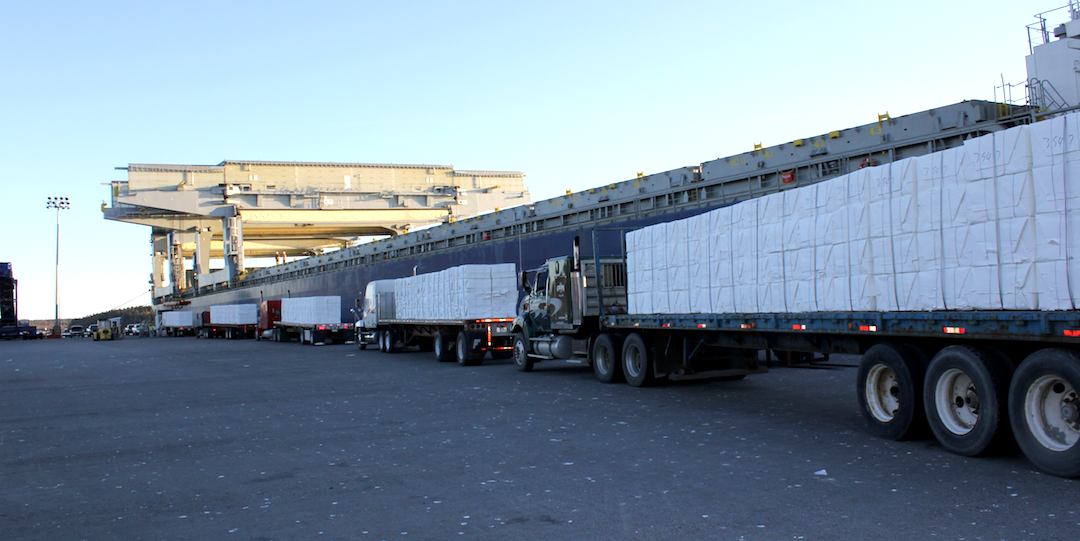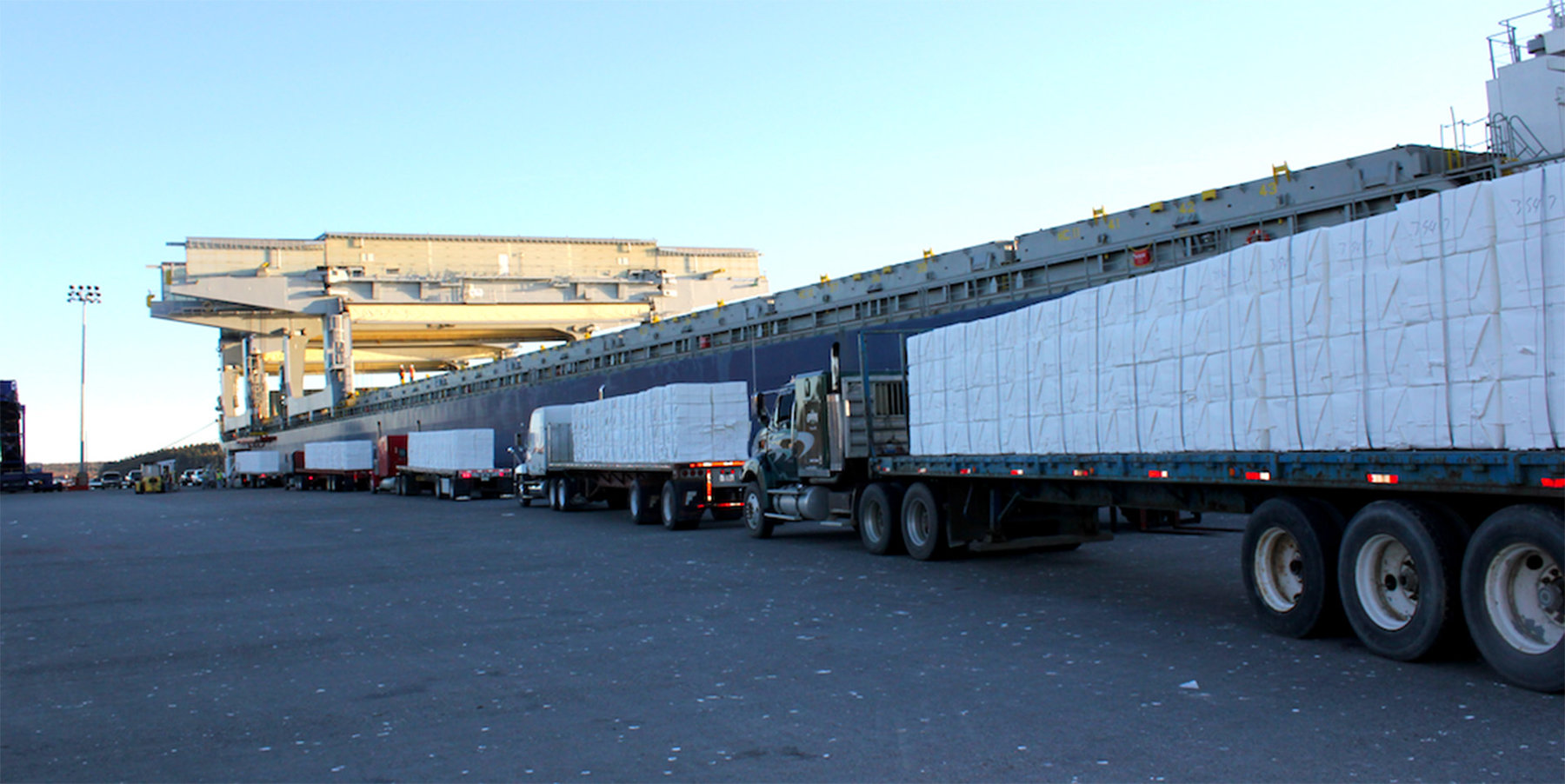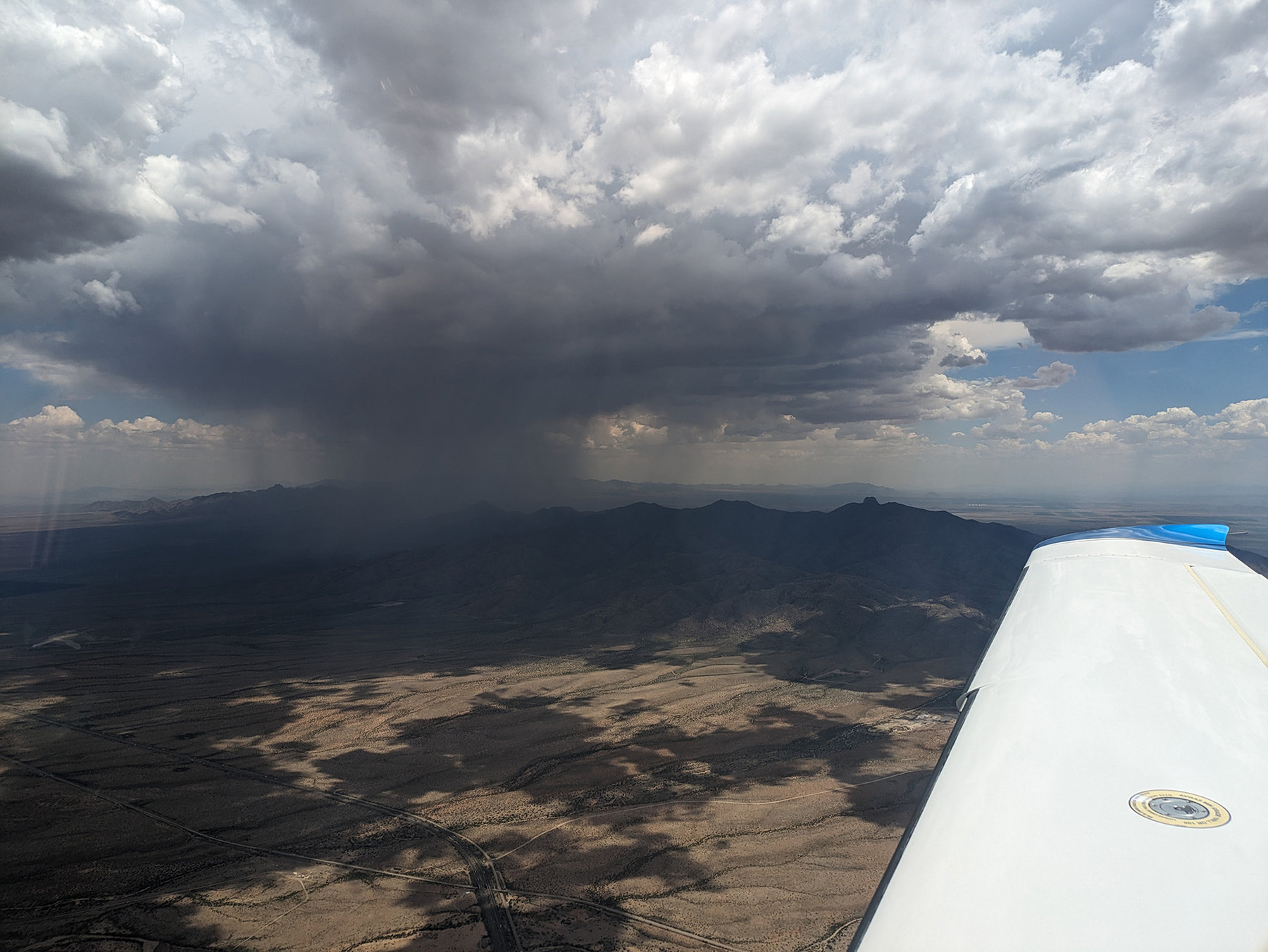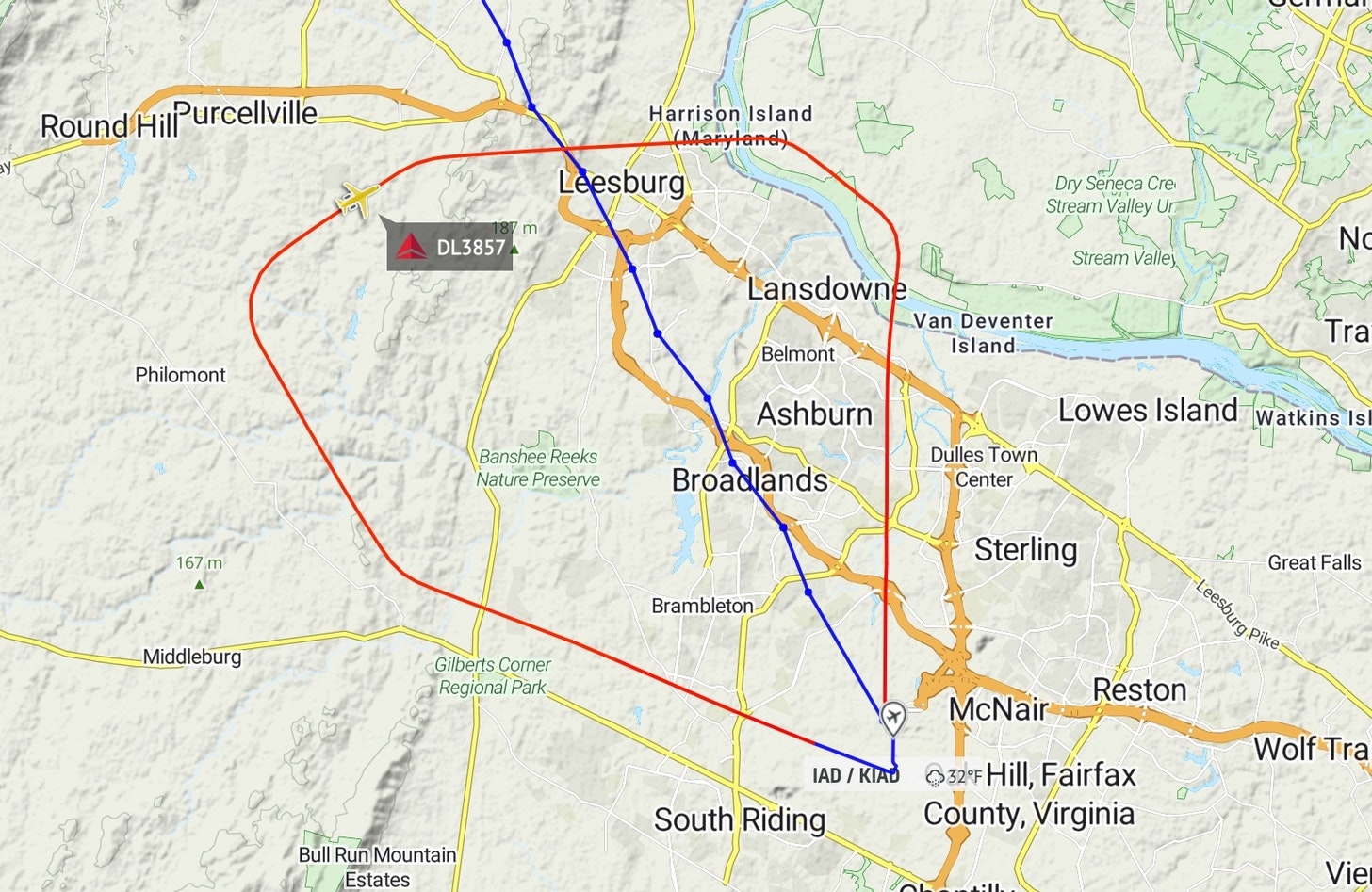Greetings from the American city closest to Europe, and first to see each day’s sunrise: Eastport, Maine, which Marketplace will describe in its broadcast on Friday and which we’ll say more about starting tomorrow. The scene below is of an unimaginably vast warehouse full of bales of Maine hardwood pulp, destined for mills in Asia.
The “pulp,” which I had envisioned as a kind of slurry, turns out to be thick sheaves of papery material, which will then be re-ground and turned into high-quality paper in Chinese, Korean, and Japanese mills. Each of the small footlocker-sized rectangles shown above weighs more than 500 pounds. We watched them loaded into a Norwegian-flag freighter, with a Filipino captain and crew, at the Eastport dock at a rate of 28 tons (one of the truckloads below) every 90 seconds or so.

More on that later, including its significance for a town of some 1,300 people. For now, these notes on the news:
1) Maddening. On the “shutdown is forgotten but not gone” front, the cancellation of a decade-long Antarctic research program because the interruption in funding happened at exactly the wrong time. According to the Chicago Tribune:
“We are still dealing with the shock of it all and figuring out what to do,” said [Ross] Powell, chief scientist on the project known as WISSARD, for Whillans Ice Stream Subglacial Access Research Drilling. “A lot of our students are really disappointed and a lot of them were crying. We are totally devastated.”
The project is funded by a $10-million grant from the National Science Foundation, and the government’s 16-day shutdown began at a critical time for antarctic research, when shipments of equipment and food are sent in preparation for the continent’s short summer research season. The shipments, which typically occur three times a week, were canceled during the shutdown, and now there is a logistical “bottleneck” that makes it impossible to get all the gear and people there in time, Powell said.
2) Sobering. A report by the Center for International Media Assistance (which receives U.S. government funding via the National Endowment for Democracy) on the ways that Chinese government restrictions on its own domestic media have spilled over to international news organizations.
3) Ditto. Check out the most recent China Files conversation, plus other items like this, on the recurrent signs of what I’ve long argued is China’s major challenge to itself and the world: pollution in all its forms.
4) Meanwhile, on America’s own problems. See this story on the latest little illustration of self-inflicted damage via the American security state. It involves one more U.S. tech company whose business has been compromised by concerns about NSA abuse.
5) The promised cheering note. I’ve mentioned many times that the Mac-only program Tinderbox is one of several “idea organizer” programs I have used and been fascinated by, like the DOS-only Lotus Agenda and the Windows-only Zoot. The creator of Tinderbox, Mark Bernstein, has launched a creative approach to funding the program’s next iteration. You can read about it (and sign up) here. Essentially it’s a request that beta-testers pay for “backstage passes” that allow them to participate in the program’s evolution.
6) Speaking of massive beta tests. If you’re one of the many who downloaded Apple’s new Mavericks operating system today, thanks! There has never, ever been a major software update whose first version was free of significant bugs. So by putting this program into use right now, you’re speeding the discovery of the bugs, their correction, and the release of the more stable and usable follow-up version. The computing public is grateful for your service.




